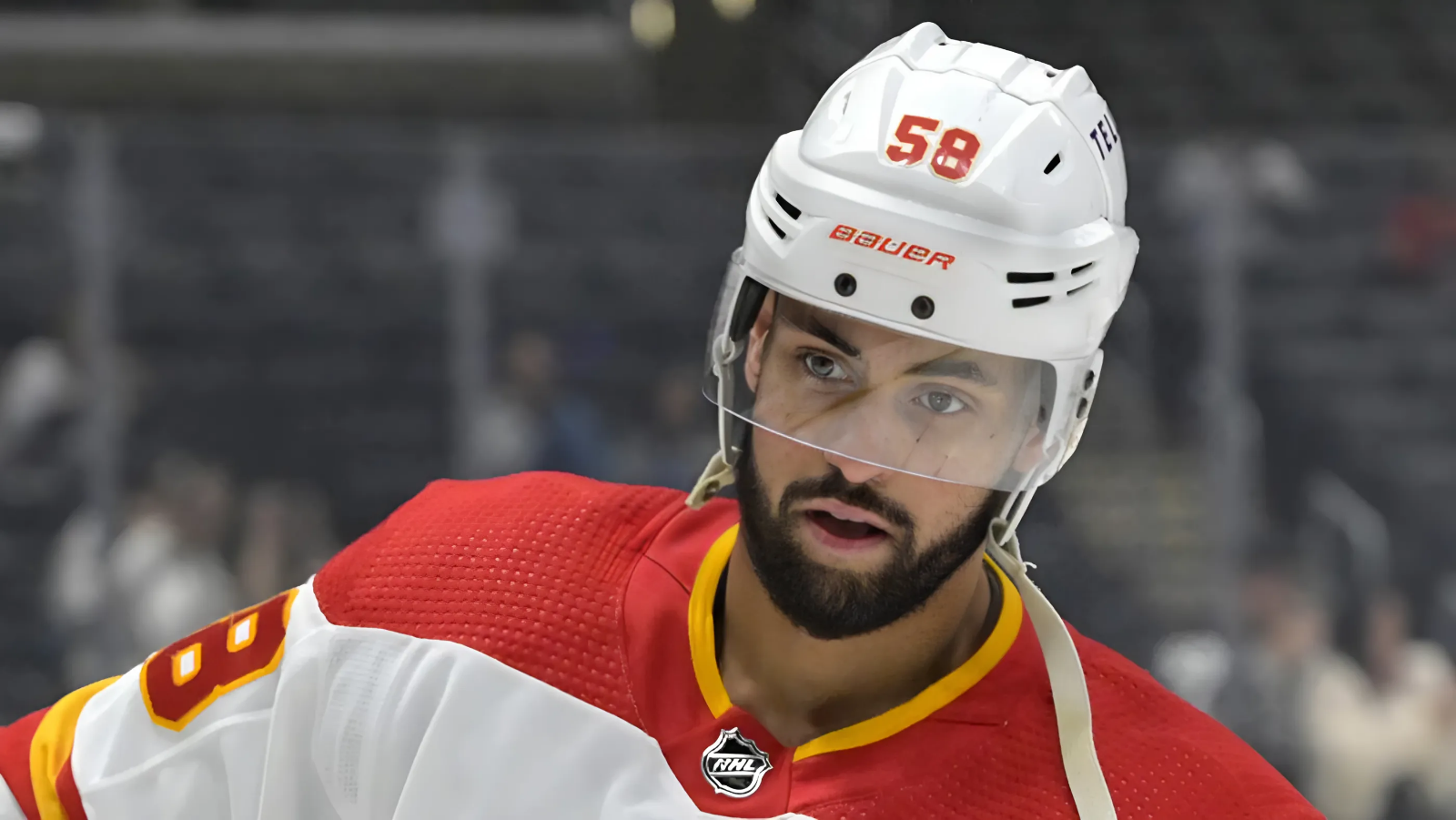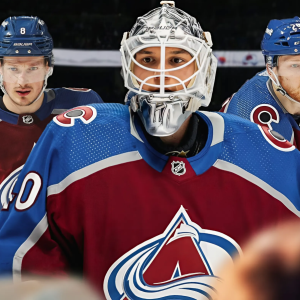Give credit where credit is due: the Colorado Avalanche are staying busy even during the dog days of summer. The team recently announced the signing of free-agent defenseman Oliver Kylington, who inked a one-year, $1.05 million contract with the team after spending the first six seasons of his NHL career with the Calgary Flames.
Kylington had eight points (three goals and five assists) in 33 games last season after returning to NHL action partway through the 2023-24 campaign. The 27-year-old defenseman missed the entire 2022-23 season due to personal reasons and was named a finalist for the Bill Masterton Trophy for his perseverance, sportsmanship, and dedication to hockey.
Though Kylington will surely seek a long-term contract next offseason, signing a one-year, prove-it deal with the high-flying Avalanche is a savvy move for a player hoping to boost his value on the open market. The defenseman joins a number of new faces on the Avalanche blue line, and his arrival will make what already promised to be a hard-fought training camp battle even more competitive.
Let’s dive into where he could fit into the lineup this season, and where Colorado’s vaunted defensive core stands after a busy 2024 offseason.
Kylington One of Many New Faces on Avalanche Blue Line
While Kylington’s arrival will garner much of the attention heading into the 2024-25 season, he is one of several additions to an already impressive blue line which saw some turnover after a disappointing second-round playoff loss to the Dallas Stars.
Sean Walker was acquired from the Philadelphia Flyers at the 2024 Trade Deadline and impressed while tallying seven points in 18 regular-season games before going pointless in 11 postseason appearances. He signed a five-year contract in free agency with the Carolina Hurricanes worth $3.6 million annually, a figure too rich for the cap-strapped Avalanche.
The other notable departure was that of 37-year old Jack Johnson, who was a part of the Avalanche’s 2022 Stanley Cup win. He returned to an Columbus Blue Jackets organization with whom he spent parts of seven seasons between 2011-12 and 2017-18. While his veteran presence will be missed, his on-ice capabilities have diminished in recent years and contributed to the parting of ways.
In terms of additions, 33-year-old Calvin de Haan is the biggest name outside of Kylington. The veteran rearguard signed a one-year contract with a cap hit of $800,000. He has struggled with injuries over the past three seasons and hasn’t played more than the 69 games he appeared in during the 2021-22 season, but offers value defensively and on the penalty kill at a cheap price.
The second notable acquisition was 24-year-old Swedish defenseman Erik Brannstrom, who did not receive a qualifying offer from the Ottawa Senators this summer. The 2017 first-round pick has struggled to meet his potential to date, but tallied career-highs across the board last season with three goals and 17 assists for 20 points in 76 games. While he’ll be in tough to carve out a regular role on a blue line which already houses more multi-dimensional defenders with his skillset, he should be utilized in more favourable deployment and could be an underrated breakout candidate for the 2024-25 season.
Outside of the three incoming defensemen, Sam Malinski is the fourth and final name who should be in consideration for a full-time spot on the Avalanche’s bottom pair this season. He split time between the NHL and the American Hockey League (AHL) in 2023-24, recording 10 points in 26 games with the Avalanche while accruing 27 points in 46 games with the AHL’s Colorado Eagles.
One factor working in Malinski’s favour is that he will no longer be waiver-eligible. At only $850,000 this season, many teams would take a flier on a player of Malinksi’s caliber and this could push the Avalanche to keep him up with the main club.
Avalanche’s Bottom Defensive Pairing Spots Up for Grabs
Barring an unexpected trade in the coming weeks, the Avalanche’s blue line has four clear fixtures: Cale Makar, Devon Toews, Samuel Girard, and Josh Manson. All four have been the team’s most-utilized defensemen over the past few seasons, have hefty multi-year contracts, and were all key cogs in the franchise’s recent Stanley Cup win. That leaves two spots on the bottom pair, with the Avalanche’s cap crunch unlikely to allow for more than a seventh defensemen on the NHL roster.
Apart from Manson, three of the top four defensemen are cerebral puck-movers who make an impact on the game through offense rather than physicality. Toews is an underrated defensive star who uses positioning and awareness to make up for his lack of physical gifts. Makar has been used on the penalty kill in the past (second among Avalanche skaters in average shorthanded ice time last season), but lightening his workload should be a goal moving forward given his recent injury concerns.
Despite his extended absence, Kylington should have the upper hand for one of the bottom-pair spots. He’s played a top-four role in the past (fourth among Flames defenders in ice time in 2021-22) and has regularly shown strong zone-transition abilities. He’s rarely been used as a penalty-killer over his career, so that does still leave a gap to be filled.
While Brannstrom and Malinski have flashed their offensive chops at times in the pro ranks, their defensive limitations have kept them from regular NHL duty. Neither has received top-four deployment at five-on-five or killed penalties, which could leave them to grapple for the honor of being the stop-gap seventh defenseman with the more-established Kylington now entering the fray.
Given that he offers something different to an at-times-redundant blue line, de Haan should start the season as a regular on the third pair. He averaged just less than two minutes of shorthanded ice time per game for the Tampa Bay Lightning last season and is more trustworthy and reliable than Jack Johnson was at five-on-five given his zone-entry defense and no-frills approach to clearing the puck out of the defensive zone.
Avalanche Hoping for Competitive Training Camp
With the top four spots on the blue line all but locked up, the Avalanche should see healthy competition for the bottom pair at training camp this fall. All four players likely in contention have either struggled to remain healthy, not been used as penalty killers, or lack professional experience.
Each member of the aforementioned quartet brings a distinct set of skills to the table, all of which could be useful to an already-dynamic blue line. Health will play a key role in determining who becomes a regular, but there is no doubt the Avalanche will trot out a new and improved defensive group come opening night.






